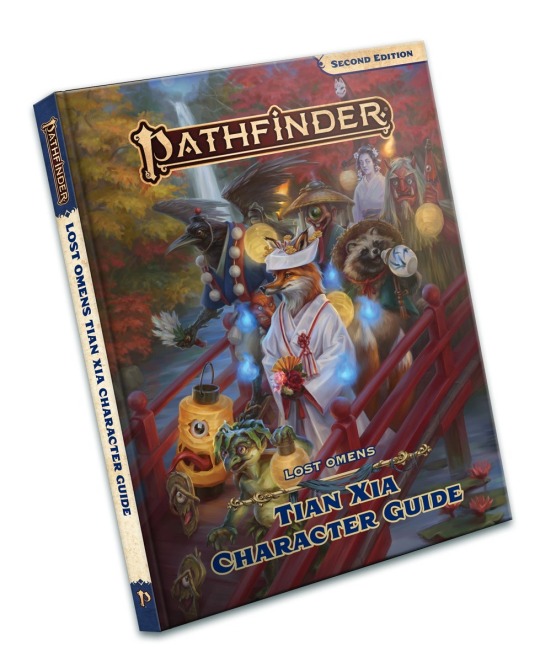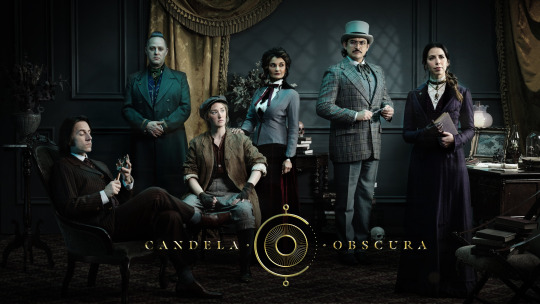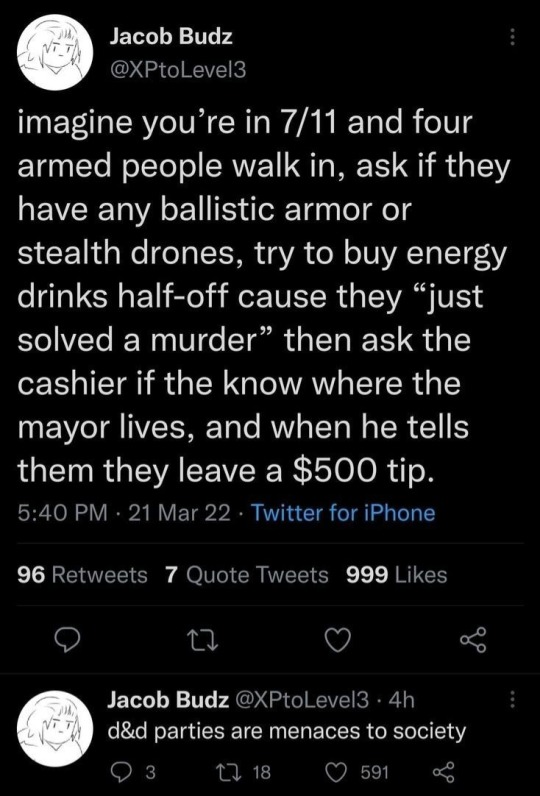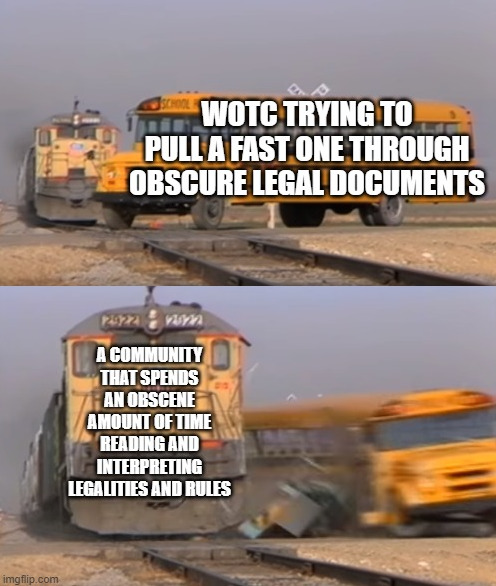Don't wanna be here? Send us removal request.
Text
Earlier today, Paizo announced long awaited books for their Asian inspired continent Tian Xia. Unlike many other companies attempting projects that large, Paizo went out of their way to hire damn near every Asian TTRPG writer in the business.
 I’ve worked on ~100 books & games. I’m often the only Asian on a project. It’s rare to have more than 1 other Asian on a book with me.
The Tian Xia books?
There were like 40 of us! 😲
I’m really glad that Paizo took the time to do this right. 💚
Players are going to see what a difference that level of representation makes when they get their hands on Tian Xia & see the massive diversity of Asian cultures & experiences reflected in the books.
I’m not just talking about countries or ethnicities; there’s also different stories of identity — diasporic groups, immigrant experiences, people reconnecting with their heritage, refugees, people finding & making places of belonging, … The sheer breadth of Asian experiences and identities represented in Pathfinder’s Tian Xia team and in our books is astounding. 
This is why representation matters.


2K notes
·
View notes
Text
Warning for cis men: if a trans woman invites you to play dungeons and dragons do NOT accept. She is attempting to induct you into her coven, and likely infect you with cooties
35K notes
·
View notes
Text
Critical Role announces its new monthly horror series using the Illuminated Worlds system, Candela Obscura!
youtube
Set in a fictional turn-of-the-century inspired region known as The Faireland, the series features Taliesin Jaffe as the Lightkeeper with Robbie Daymond, Laura Bailey, Anjali Bhimani, and Ashley Johnson and a story led by Matthew Mercer.

The first chapter of Candela Obscura will run for three episodes starting May 25, 2023. A quickstart guide for the setting and its characters will also be released that day, and Darrington Press will release a core rulebook later this year.
For more information, you can check out the announcement.
3K notes
·
View notes
Text
attention, d&d dorks


yada yada rb to get a bigger sample size, you know the drill
6K notes
·
View notes
Text
The wizard in your party only knows one spell. It’s effective, but even the assassin feels bad about it.
58K notes
·
View notes
Text
I don't know what to do about the fact that Chuck Tingle is now aware of Critical Role.
6K notes
·
View notes
Text
fae courts like, you know, the fae small claims court
19K notes
·
View notes
Text
so in D&D the gelatinous cube is an explicit in-setting ecological representation of the fact that "dungeons with ten-foot-wide corridors" are a common enough feature that there are creatures adapted or designed specifically for them. but dragons aren't adapted for that design at all, nor are a lot of the other big guys; they either need separate exits or to use magic or shapeshift into a human form to go throguh the tunnels
but this is a problem that has been solved in real-life! the problem of "large animal that needs to get into a fairly consistently-sized tunnel that's significantly smaller" is solved by snakes, and, crucially, by mustelids, animals that are very long relative to their size. so I think D&D needs more of that. there should be giant ten-foot-wide dungeon weasels and stuff.
24K notes
·
View notes
Text
I legit just started a Worlds Without Number campaign. (I get to play in this one!) It took a handful of brand new players who had never even cracked open the (free to download) core rulebook less than 3 hours to get all of our characters created. Six characters created in less than three hours, with each of us getting individual attention from the GM. There’s enough of a following for this system that foundry has beta tools for gameplay.
Haunted West is not a free download, but a single core rulebook. A bit of a tome, but one book. I haven’t had the chance to roll a character or play yet, but am looking forward to it.
Old Gods of Appalachia (the amazing horror podcast, highly recommended) is currently testing bits and pieces of their tabletop that will be coming out soon-ish. As somebody who backed their kickstarter, I got to test character creation recently. Again, it was short and quick. I believe the goal by the end of the testing is to have a single book and an open world.
The options are out there. It’s well worth looking into these things.
Leaving D&D: Things to Watch Out For
This is gonna sound nutty, but I have experience in two wildly separate areas of my life that I am going to connect together for the sake of helping folks who are currently thinking about dropping D&D with the leaked OGL 1.1 shenanigan, so please bear with me.
Okay, so basically, in pagan and heathen circles, there's this phenomenon a lot of us refer to as "Latent Christianity" where, even if you've forsworn Christianity and might even have replaced it with another faith, there's this tendency where you bring all this emotional, spiritual, and cultural baggage from being raised in a predominantly Christian environment that bleeds into your worldview and everyday approach to life. things like believing any crime, no matter how small, stains your ability to be a "good person;" or a strong desire to abstain from sex until you're married in the interest of keeping yourself "pure;" or even something as widely recognizable as a secret, lingering fear of going to hell for being "wrong" even if you don't necessarily believe in hell. This stuff can be deeply ingrained into your brain and it can take years of deprogramming before you can truly learn to let those kinds of beliefs go.
In the same vein, there's this tendency to view TTRPGs in a similar light: through the cultural lens of Dungeons and Dragons, a sort of "Latent D&D" if you will. If you've only ever played one game and have spent years doing so, there are going to be a lot of assumptions you take as a given that simply don't apply to a lot of RPGs, and these assumptions can bleed into your approach to game design or even reading and playing other existing games.
I've seen and experienced this firsthand: I've heard people say things like "XP systems aren't my thing" even though they've only ever played D&D and haven't experienced what another XP system feels like, or "I don't like combat, it's too slow" when other games don't even differentiate combat from regular gameplay and fights are smooth, fast, or might not even be a main draw of the system.
So, in the interest of helping people understand what biases they might be carrying over from D&D into the wide-open world of TTRPGs, I have a list of things you should think about when approaching other games (or even writing your own), titled: "Things I Wish I Knew About Before Trying Other Games":
Adversarial GM'ing: The idea that when you play an RPG, the players and Game Master are inherently at odds with each other and serve as each other's opposition, and that "making the DM/Players cry" should be a goal of the game. Many games stress the GM as being a supplementary role or someone who should be "rooting for" the players, and lots of games don't even need to have a GM at all.
Roll Dice To Make Stuff Happen: The idea that any situation must map to a specific skill and must be rolled to see if something happens, instead of simply allowing that something to happen on its own or only rolling dice when specific criteria or triggers are met. Most games don't have an exhaustive list of possible skills or require dice rolls to decide every small even that happens.
Massive Tome of Rules: The idea that all RPGs have or should have a metric shit-ton of rules for every situation, and that rulebooks are all these thick, ponderous tomes that need to be sifted or flipped through to understand/play the game. Most RPGs have significantly smaller page counts than D&D and don't require rules for every possible situation you come across: You'll find lots of books and zines that are less than 200 pages long for the whole game.
Not Enough Time or Money: The idea that all RPGs cost the same amount of time, money, and brainpower to invest in as D&D. This goes hand-in-hand with the above point, but TTRPGs in general are not an expensive hobby to get into: D&D is. Most games are self-contained in a single book that costs less than the 5e PHB, and can be quickly read through for a refresher if you put it away and pick it up later. There is no need to memorize the entire ruleset, and if there is, it's small enough to where it's not a huge investment to do so. There are also loads of free and cheap games on itch.io that you can check out.
Miniature Wargame Simulator 5000: The idea that all RPGs have granular combat and assume you're using a battle grid. D&D is actually very unique in this regard: The idea that you need a tabletop representation of the battlefield is actually a carryover from earlier editions being spin-offs of wargames. Plenty of RPGs don't have structured combat, and those that do have much more loose interpretations of the action that give it a cinematic feel and rely more heavily on theater of the mind.
Grand Sprawling Epic Syndrome: The idea that RPG sessions should be at least 3-4 hours long, and that campaigns should always be sprawling, big-ass epics that span several years worth of story. If you can do this, and like to, then that's awesome! But not everyone has time or a steady schedule to commit to this. Most games are centered around short-form play such as one-shots or campaigns that only last a few sessions. Many have advancement systems that can be maxed out within a handful of games. In addition, lots of games only need 2-3 hours to play a single session, and, with rules that are more focused on narrative rather than keeping track of every possible combat scenario (see number 5), you can actually accomplish a lot more story-wise in a shorter amount of time.
Dice Goblin Crack: The idea that all games need to use the full set of polyhedral dice. There's nothing wrong with using lots of cool dice: I love them! But most games usually commit to one or two die shapes for the sake of convenience. Lots of games only use d6s or d10s to work its mechanics. Plenty of games don't even use dice at all! Some use playing cards, tokens, or other tools to resolve conflict and keep track of resources. You don't need a big bag of dice to play most RPGs.
Nobody Plays This Game!: The idea that D&D is the only game with a dedicated community and that you will struggle to find people to play/run it with you. Lots of places online exist to talk about other games if you look for them! Forums, subreddits, twitter and facebook groups, etc., all are really good places to find people willing to talk about and play these games, though, admittedly, this is more true for games that are more well-known like Blades in the Dark or Mork Borg. Also, part of the effort comes from you! One way I got more people talking about different games was to introduce them to my group and offer to run it for them so we could all try it out. Physically bringing the game to your group can start a conversation about them!
So this is really only scratching the surface of what to look out for, but I hope this helps some folks!
1K notes
·
View notes
Text
Pros of D&D planning on paper: do not get distracted by the internet, easier to remember, easy to reference during the game
Cons of D&D planning on paper: if you forget the notebook you're fucked; non-searchable; requires bookmarking physical books
Pros of D&D planning w/online tools: readily accessible, searchable, fast, can usually link to relevant monsters
Cons of D&D planning w/online tools: the internet beckons, less physically satisfying
Pros of doing both: all the benefits cancel out most of the drawbacks
Cons of doing both: time-consuming
Pros of doing neither and lying face down on the floor: free, easy
Cons of doing neither and lying face down on the floor: inherently obvious
157 notes
·
View notes
Text
a dnd concept: halfling community where all the bonkers dangerous magical artifacts brought back from various Adventures are kept in the local mathom-house, safely gathering dust under glass
when young halflings find themselves seized with the urge to go adventuring, they are permitted to check things out from the mathom-house as long as they promise to be careful with them and keep them polished and read the instructions before using them. also if they find any new bonkers dangerous artifacts the mathom-house gets to keep them
in this way the sleepy, peaceful halfling village gets to stay sleepy and peaceful while sitting on the magical equivalent of several unexplored nukes
4K notes
·
View notes





